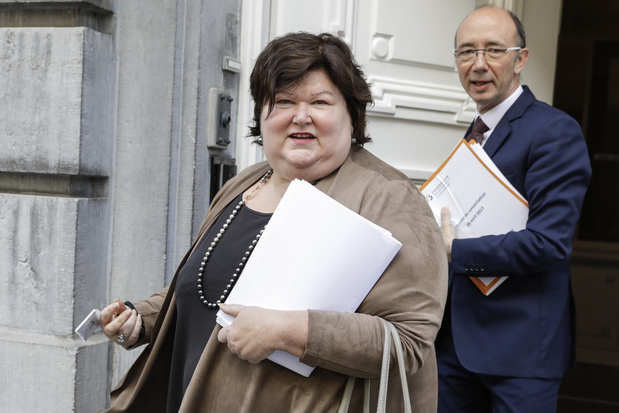Belgian government launched millions of emergency masks in 2019
- In Belgium, as in many other European countries, including the Basque Country, protective masks are inaccessible to professionals and volunteers working against the coronavirus. For lack of foresight? As has been seen in Belgium, neoliberal policies have brought the cuts imposed on health to an extreme and now it is time to pay for the consequences: Belgium had a large stock of masks for millions of people, but in 2019 the government decided to destroy them without buying new ones and accumulate them instead.

According to the Belgian Radio Televisión Pública today, of those very effective masks that today in Belgium cannot access any country to cope with COVID-19, it had millions of governments and destroyed them in February 2019, without yielding to the criteria established by the World Health Organization. Twelve months later, in the absence of those lost, the Flemish Minister of Health, Maggye De Block, has made great strides all over the world, including making great mistakes: Some bought in Turkey did not reach Belgium for fraud, the emergency brought from China came out of poor quality...
The millions of masks that Belgium had led to destroy in early 2019 formed a strategic reserve, type FFP2, with the greatest isolation capacity. The journalist Nicolas De Decker explained in the magazine Le Vif that Belgian public radio television has used as a reliable source, that there were millions of masks in that strategic stock in Belgium. In 2006, when he was Minister of Health, Rudy Demotte, the government bought 32 million surgical masks and 6 million isolates of FFP2 in particular. This deposit was updated and renewed in 2009 with the extension of the threat of avian influenza A/H1N1 at a cost of EUR 9 million. Those 9 million then seem ridiculous compared to the fortunes that we have to spend today in a hurry and suddenly, but ...
All that pile of masks was destroyed by fire in 2019. Or in 2017 -- because the current Liberal Minister of Health, Maggie De Block, did not feel like discussing the date when journalists, showing him a copy of the minutes of a meeting of the Belgian Risk Management Committee, have spoken. In the minutes of the Emergency Committee it is possible to read "this stock has reached its expiry and has been destroyed last year", so that doubts are allayed. However, the minister says: "This stock was collected by the Ministry of Defense, but not in good condition. Masks were unusable and destroyed in 2017." De Block is a family doctor who is involved in the study.

Although the date of 2017 was certain, the fact is that, despite having spent three years since then, the Belgian Government did not organise new protective mask stores. "We wanted to organize a stock that would be continually renewed, sell part of the stock without respite and renew the warehouse, so that the equipment that had been saved would not expire," the minister said. Whether it is true or excuse, the small Chinese dragon Covid-19, like other Europeans, has reached the neoliberal government in Brussels. Because before that, the authorities had already established – as Nicolas De Decker pointed out – a strict standard in state budgets: The annual health budget could not grow by more than 1.5%: "This growth did not reach the level that health professionals consider necessary and, as if that were not enough, did not even reach that annual growth of 1.5%," the counselor said.






















